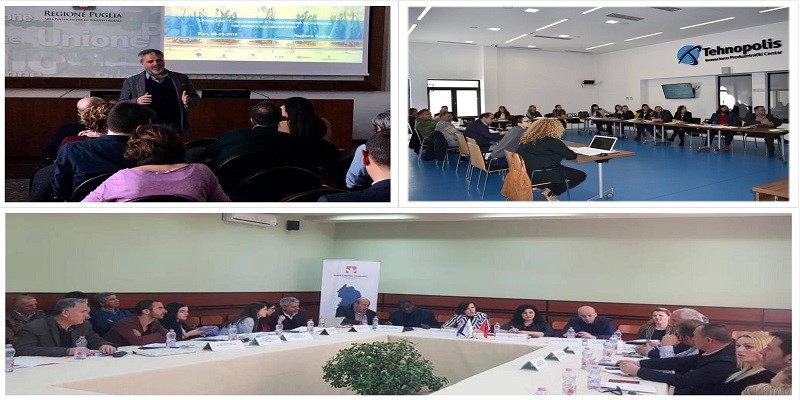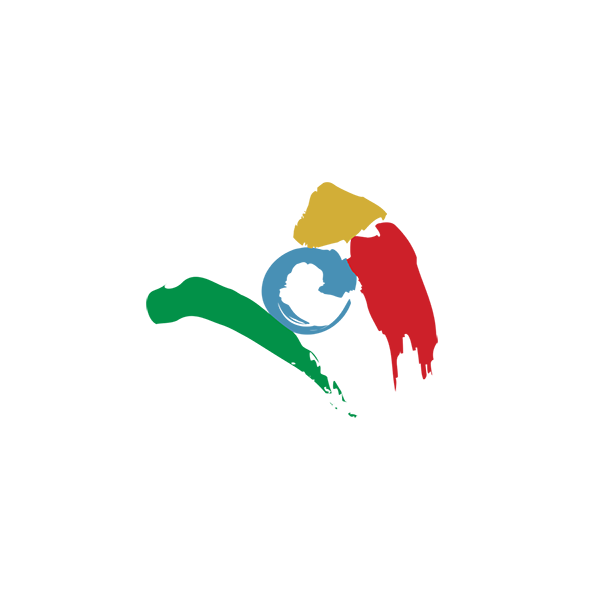
In the frame of the FILA project, the activity LIVING LAB - Cooperation and technology transfer in the agri-food sector has been implemented.
What is a FILA LAB?
It is a virtual and physical environment for meeting the stakeholders of the innovation chain (SME, farmers, innovation brokers, research organizations) that express needs and develop innovative solutions in the agri-food sector.
The objective of these living lab is the Co-creation of FILA lab Model: improving the transfer of research results and innovations to foster the competitiveness of agro-food companies. The methodology used for the implementation of the activity has foreseen the organization of three different meetings:
- The first meeting intended to analyze the problems of the current technology transfer and knowledge system;
- The second meeting intended to identify solutions to problems detected in the first meeting;
- The third meeting intended to present, discuss and share the FILA LAB MODEL. The three meetings were correlated thematically with one another aiming to co-create the FILA lab Model: improving the transfer of research results and innovations to foster the competitiveness of agri-food companies. The specific objectives of the three meetings were: “FILA Living Labs” aimed to develop a creative, experimental and innovative space, where stakeholders with very different interests and experiences can collaborate.
Participants invited to living labs, were representative actors of different categories of the innovation chain. Participants were the same persons in all three workshops, in order to give coherence at the work they realized step by step and also to facilitate and establish relations between them.
This methodology has been followed in the program area by project partners, which organized the three meetings in their own countries, analyzing the technology transfer in the agri-food sector, in order to have three different sceneries in Puglia, in Albania and Montenegro.
This methodology has been followed in the program area by project partners, which organized the three meetings in their own countries, analyzing the technology transfer in the agri-food sector, in order to have three different sceneries in Puglia, in Albania and Montenegro.
LIVING LAB IN PUGLIA, ITALY
In Puglia, CIHEAM Bari in collaboration with Apulia Region, has involved experts belonging to different categories related with innovation, like Professional Associations, Public Administration, Academic, Researcher, Innovation Brokers, entrepreneurs.
The first meeting was held on March 6, 2019, at the conference hall of the Department of Agriculture of the Puglia Region, FILA project partner. A total of 16 representatives of the above mention categories participated to the meeting:
- 3 representatives of universities and research centers
- 5 representatives of the public administration
- 5 company
- 3 exponents "innovation broker"
This first meeting aimed to identify the main problems in the field of technology transfer, following a shared discussion among the participants.
The second meeting was held on March 22, 2019, at the conference room of the Agriculture Department of the Puglia Region.
A total of 16 representatives of the various categories participated in this meeting, including:
- 3 representatives of universities and research centres
- 5 representatives of the public administration
- 6 company representatives
- 2 exponents "innovation broker"
Starting from the problems identified in the first living lab, this second workshop aims at identifying the relative solutions to solve them through an open discussion between the different workgroups.
The participants during the first living lab have been able to understand, analyse and synthetize user’s needs, ending up with a set of human-cantered problems. With this solid background, all the members of the teams start to "think outside the box" in order to identify new solutions to the set of problems previously identified.
In this 2nd meeting the most important step was to turn the problem into an opportunity, creating valuable solutions through the generation of challenging questions for the users.
The third workshop has been held on April 8, 2019, at “Buò” Restaurant and aimed to present, discuss and share the solutions identified in the agriculture and agri-food sector and to draft the Apulia FILA LAB model. Participants were actively engaged in providing inputs for FILA model.
At the end of the meeting, a cocktail of thanks has been offered in order to have a sharing moment between participants that have been present during these 3 meetings.
The last meeting was attended by 17 participants from the following categories:
- 6 from universities and research centers;
- 4 from public administration;
- 4 from SMEs;
- 3 Innovation brokers
LIVING LAB IN ALBANIA
The 1st workshop was held on 18 February, 2019, at ADF Korça Regional Office and aimed at fostering interaction among innovation actors and gathered together farmers, academics, local authorities, and businesses who addressed the problems and challenges in the technology transfer and information system related to agri-food in Region nr. 3 (Korçe Elbasan, Berat), in Albania.
The total number of participants in the first Korça Living Lab was 26 persons: 5 projects and partner’s staff and 21 representatives of 7 identified categories as actors of the innovation chain in the agro-food sector.
The participants were divided into:
- 4 from Academia (University of Korce)
- 3 from Regional Governmental Entity
- 1 from Public Administration
- 5 from NGO – Advisory services/ Innovation broker
- 2 from Private company- innovation broker
- 2 from Producer company- private business sector
- 4 Individual farmers
The participative approach methodology used in the first living lab meeting resulted in a positive reaction and impact for the targeted participants. They were greatly interested in the thematic subject of the meeting as they stated the importance of all related actors to meet and share and exchange not only opinions but also knowledge and information.
The second meeting was held on 5 March, 2019, at ADF Korça Regional Office.
The methodology used during the meeting was based as well on the participative approach and aimed at generating discussion, encourage interaction and expressed opinions of the various innovation chain actors leading to shared input for the FILA model.
The total number of participants in the second Korça Living Lab were 23 persons: 4 project and partner’s staff and 19 representatives of 7 identified categories as actors of innovation chain in agri-food sector.
The participants were divided into:
- 2 from Academia (University of Korce)
- 3 from Regional Governmental Entity
- 1 from Public Administration
- 3 from NGO – Advisory services/ Innovation broker
- 1 from Private company- innovation broker
- 2 from Producer company- private business sector
- 7 Individual farmers
‘Living Labs’ and ‘Operating Groups’ are relatively new concepts and practices in Albanian localities, as well the range of problems related to agriculture development are many and complex in the context of country development. As such the small group problem tree analyses were difficult to be realized as the participants need to be first aware of where do they belong in the innovation chain and the role they can play best. In the process of improving the practices of living labs the problem tree analyses can be conducted with a small group and followed by the voting step.
Prioritizing of the results was not so easy due to the complexity of the issued addressed and discussed.
The 3rd meeting was held on 16 April, 2019, at ADF, Korça Regional Offices and aimed at concluding the process of Albania FILA lab model co-creation through discussion and sharing the FILA lab functions. In addition, it aimed at encouraging long-term interaction upon the co-creation of Korça FILA model. The meeting gathered together, for the third time, farmers, academics, local authorities and businesses representations as well as Project partners’ representatives and one special guest from EIP AGRI Service Point, Mr. Pacome Eulona Eyenga – Team Leader.
Inviting one representative from EIP AGRI to participate in the third meeting aimed at creating an opportunity for the workshop target group / participants to know more about experience
The total number of participants in the third Korça Living Lab were 28 persons: 3 project staff, 5 project partner representatives, 3 special guest and 17 representatives of 6 categories:
- 5 from Academia: University of Korce;
- 3 from Regional Goveramental entity;
- 5 from NGO;
- 1 Innovation broker;
- 3 individual farmers
Participants were greatly hopeful for the experience sharing of European best practices in agri-food innovation to be organized and developed. Almost all of them were eager to speak and express their agreement on FILA model presentation.ù
LIVING LAB IN MONTENEGRO
The first workshop was held in Niksic, at IEC Tehnopolis on 27 February, 2019, and was attended by 23 participants divided into the following groups:
- 3 from Universities and Research Centers;
- 8 from Public Administration;
- 4 from Enterprises;
- 5 Innovation brokers;
- 3 from Other realities
Participants had the opportunity to share other issues they face in everyday work with beneficiaries coming from the agricultural sector.
In Montenegro, project partners decided to anticipate the opening of the works with a one follow-up mail, asking participants to name other relevant problems, giving the possibility to consult and discuss with their employees, partners, and beneficiaries. The identified problems were extracted from a much larger list of problems.
The second workshop was held in Niksic, at IEC Tehnopolis on 28 March, 2019, and was attended by 16 participants divided into the following groups:
- 2 from Universities and Research Centres;
- 8 from Public Administration;
- 3 from Enterprises;
- 3 Innovation brokers.
All participants were engaged in the discussion, giving relevant proposals towards defining solutions for problems of knowledge transfer between actors of the innovation chain.
They proposed concrete innovative solutions for primary production that they are familiar with. Also, participants proposed a model of needs assessment for potential practitioners.
The third workshop was held in Niksic, at IEC Tehnopolis on 15 April, 2019, and was attended by 13 participants divided into the following groups:
- 1 from Universities and Research Centres;
- 8 from Public Administration;
- 1 from Enterprises;
- 3 Innovation brokers.
Participants were actively engaged in providing inputs for FILA model because they recognize the benefits of future FILA in Niksic. They believe that the promotion of the work of FILA is very important for the development of an innovative way of analyzing and solving problems in agriculture and agri-food.




